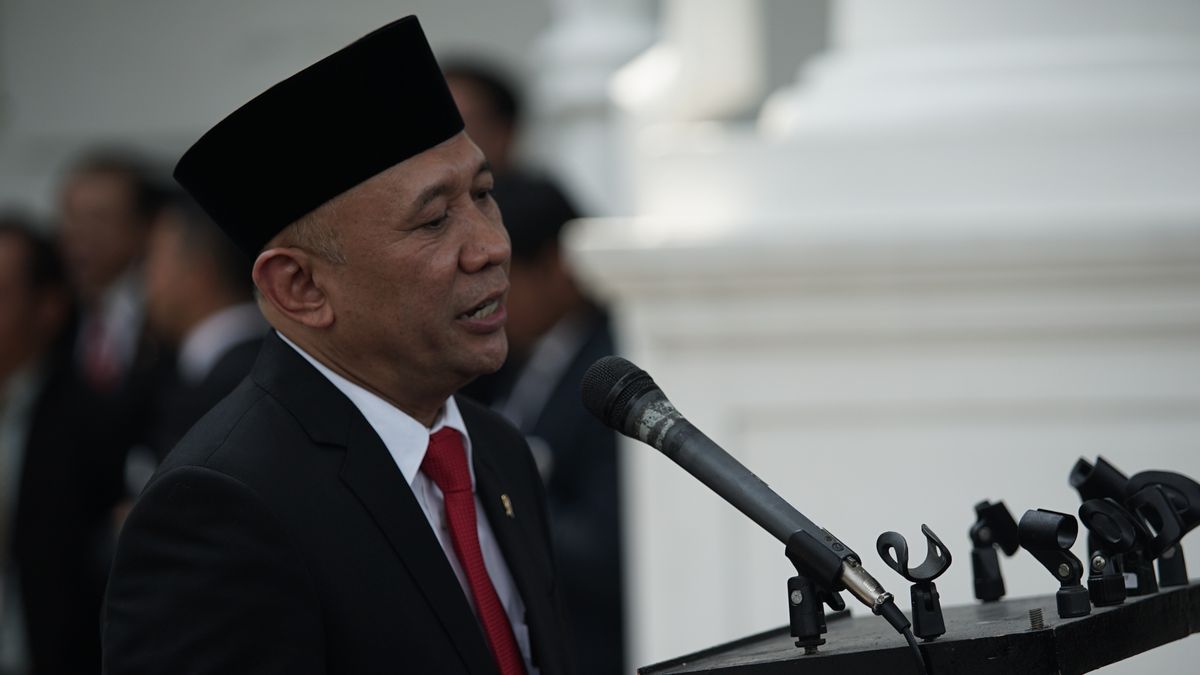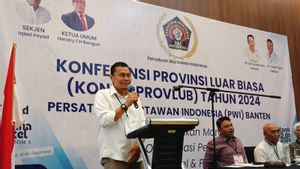JAKARTA - Minister of Cooperatives and SMEs, Teten Masduki said, his party is targeting 6 percent of small and medium enterprises (SMEs) in Indonesia to upgrade from small to medium enterprises and from medium to large businesses.
Teten said that currently the number of small businesses is 700 thousand. This means that 6 percent of the total 42 thousand have to go to class. Meanwhile, the medium-sized businesses are currently as many as 60 thousand. This means that 6 percent of this amount of 6,000 must go to class.
"So, the target of moving up to grade in the next five years is 48,000 small and medium enterprises," said Teten in a statement quoted on Friday, January 17.
Teten added, this target is in line with economic growth in 2020 which is also targeted at 6 percent. His party also strives for the next few years the number of entrepreneurs in Indonesia above 2 percent.
Currently, the number of Indonesian entrepreneurs is below 2 percent. "We are losing to neighboring countries such as Malaysia, Singapore, Thailand, which are already far above 20 percent," he said.
Regarding micro-businesses, Teten said, let micro-businesses run as usual, because micro-businesses are the foundation of the national economy. "Micro businesses are not too problematic," said Teten.
As is well known, micro, small and medium enterprises (MSMEs) have an important role in the Indonesian economy. The government considers the existence of MSME actors as important. The proof, MSMEs together with cooperatives have a special forum under the Ministry of Cooperatives and SMEs.
At least, there are three roles of UMKM which are very important in the life of the small community. First, as a means of lifting people out of poverty. The main reason is the high rate of employment by MSMEs.
This is evident in data belonging to the Ministry of Cooperatives and MSMEs. Mentioned, more than 55.2 million UMKM units were able to absorb around 101.7 million people.
Second, as a means of leveling the economy of the lowly people. MSMEs also have a very important role in the economic equality of society. Unlike large companies, MSMEs have locations in various places. Even in areas that are far from the reach of the times.
The existence of MSMEs in 34 provinces in Indonesia reduces the economic gap between the poor and the rich. In addition, the small community does not need to go to the city in droves to get a decent living.
Third, provide foreign exchange income for the country. Currently, Indonesian MSMEs are quite advanced. Its market share is not only on a national scale, but internationally.
The English, Chinese, Japanese, Arabic, and French versions are automatically generated by the AI. So there may still be inaccuracies in translating, please always see Indonesian as our main language. (system supported by DigitalSiber.id)













